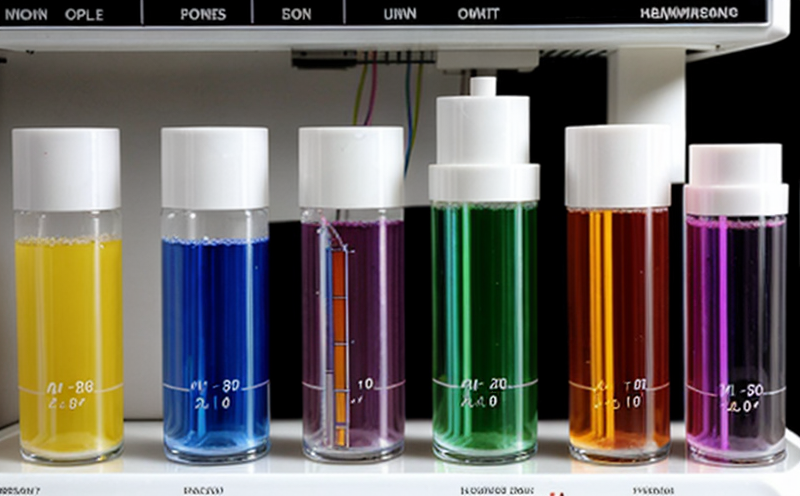DIN EN 13657 Digestion Testing for Chromatographic Analysis
The DIN EN 13657 standard provides a comprehensive approach to digestion testing specifically designed for chromatographic analysis. This method aims at enhancing the precision and reliability of analytical results by ensuring that all constituents in complex samples are sufficiently dissolved before being analyzed using gas or liquid chromatography.
This digestion process is crucial when dealing with matrices such as food, feed, pharmaceuticals, petrochemical products, and environmental samples where organic compounds may be present in varying forms. By subjecting these materials to acid-based or alkali-based digestion processes outlined in DIN EN 13657, analysts can break down complex molecules into simpler components that are more amenable to chromatographic separation.
The standard specifies several types of digestions tailored to different sample matrices and analytical goals:
- Strong Acid Digestion: Suitable for organic compounds resistant to less aggressive conditions.
- Weaker Acid Digestion: Ideal for samples containing higher proportions of inorganic elements that are not easily attacked by strong acids.
- Beta-Protease Digestion: Used when examining proteins or amino acids, providing a gentler digestion method compared to acid-based alternatives.
The digestion process is followed by thorough rinsing of the residue with deionized water and subsequent drying before analysis. This ensures that no residues remain which could interfere with chromatographic separation and detection.
The resulting solutions are then ready for quantitative or qualitative analysis using HPLC (High Performance Liquid Chromatography) or GC (Gas Chromatography), depending on the nature of the sample and the required outcome.
Accurate digestion is critical as even small amounts of undigested material can lead to inaccurate results. Proper technique and adherence to the standardized procedures outlined in DIN EN 13657 help minimize errors, thereby enhancing the overall quality and reliability of analytical data.
Eurolab Advantages
Expertise: Eurolab's team comprises experienced chemists, analysts, and engineers who specialize in chromatographic analysis. They stay current with the latest developments in digestion methods and analytical techniques.
- Our professionals have extensive experience working with DIN EN 13657 and other international standards like ISO 14928 for solid residue determination.
- We continuously invest in state-of-the-art equipment, ensuring that we can handle a wide range of sample types and complexities.
Comprehensive Services: Beyond just digestion testing, Eurolab offers a full suite of analytical services including method development, validation, and custom analysis tailored to client-specific needs.
Rapid Turnaround: With streamlined processes and advanced instrumentation, we can deliver results faster than industry averages without compromising on accuracy or precision.
Confidentiality: Understanding the importance of data protection in various sectors such as pharmaceuticals and food safety, Eurolab maintains strict confidentiality protocols to ensure that client information remains secure throughout every stage of analysis.
Quality and Reliability Assurance
At Eurolab, quality assurance is not just a phrase but an integral part of our daily operations. We adhere meticulously to DIN EN 13657 and other relevant standards, ensuring that every step from sample preparation to final report generation meets the highest industry benchmarks.
- Strict Compliance: Our analysts strictly follow all prescribed steps in DIN EN 13657, using certified reagents and calibrated equipment.
- Dedicated Quality Control: Regular internal audits and external certifications ensure continuous improvement in our processes.
We have implemented rigorous quality control measures to catch any potential errors early on. This includes not only checking the accuracy of our calculations but also verifying the physical state of samples post-digestion to confirm that all necessary compounds are present for subsequent chromatographic analysis.
Our commitment to maintaining high standards is reflected in our consistent performance across various industries where DIN EN 13657 digestion testing plays a crucial role. Whether you're a food manufacturer concerned about contaminants, a pharmaceutical company ensuring drug purity, or an environmental agency monitoring pollution levels, Eurolab can provide the confidence needed for reliable analytical results.
Competitive Advantage and Market Impact
The implementation of DIN EN 13657 digestion testing offers several competitive advantages:
- Enhanced Accuracy: By ensuring complete dissolution of all sample components, this method reduces the margin for error in subsequent chromatographic analysis.
- Increased Efficiency: Standardized procedures streamline workflow, reducing time spent on manual adjustments and troubleshooting common issues associated with incorrect digestion.
- Better Data Integrity: Consistent results across different laboratories using DIN EN 13657 contribute to more reliable data that can be trusted in regulatory submissions or internal decision-making processes.
In terms of market impact, compliance with this standard is becoming increasingly important as regulations evolve. Many industries are now required by law to demonstrate adherence to such standards during product certification and quality assurance audits. Eurolab's ability to provide compliant services positions us favorably among competitors who may not yet have invested in this level of expertise.





